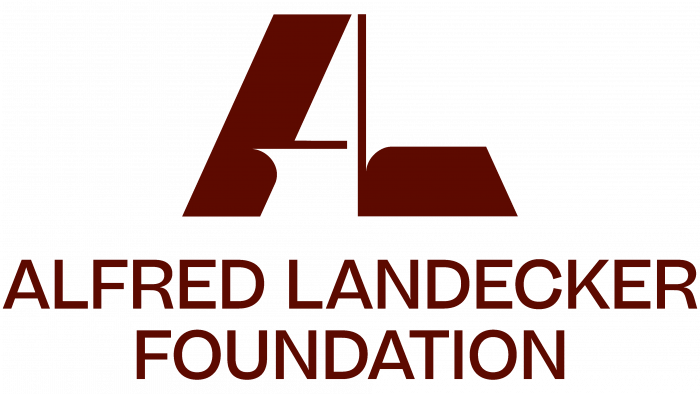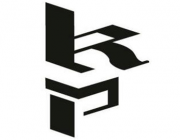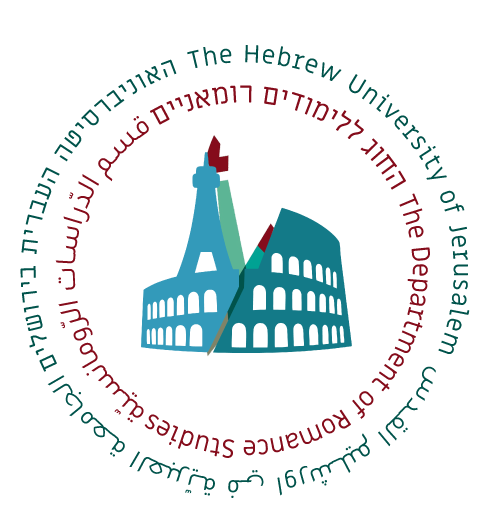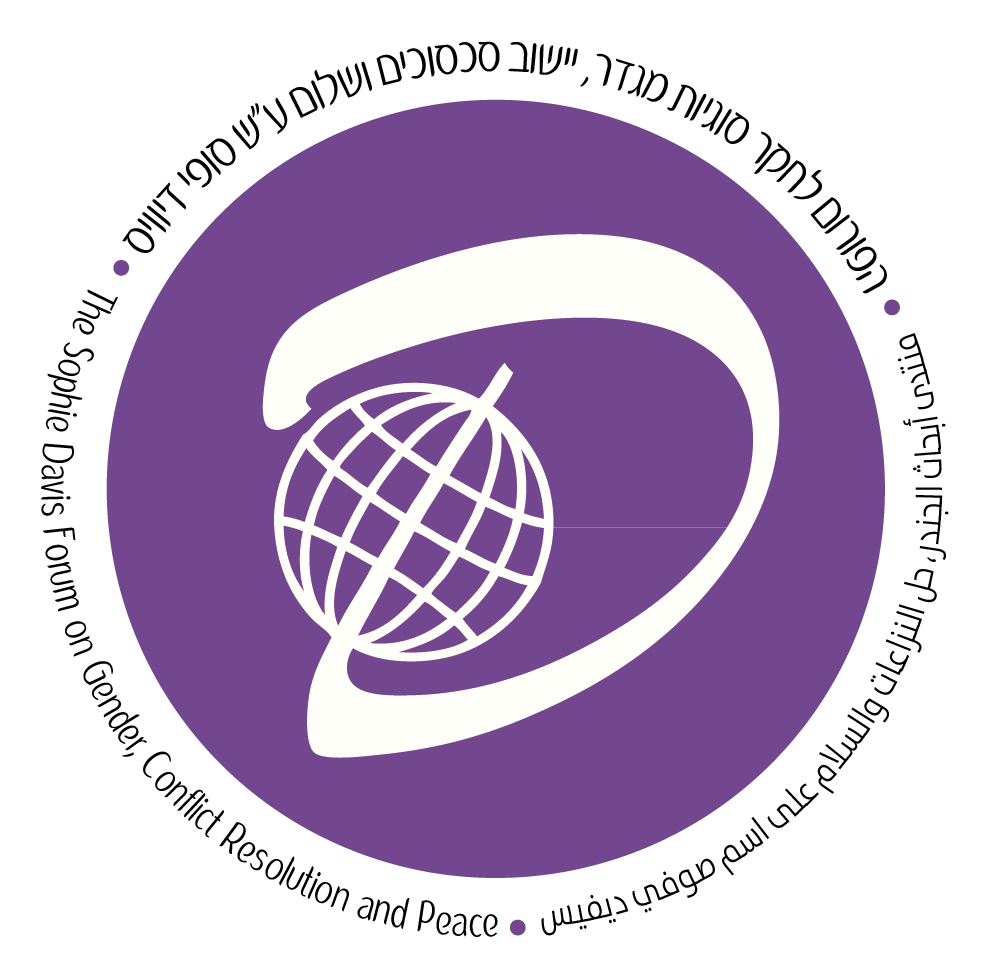European Forum
The European Forum at the Hebrew University was established in March 2005. The Forum includes research centers, graduate study programs, and research funds. It is a multi- and interdisciplinary intellectual community bridging among the social sciences, humanities, and legal studies. Its administrative management is anchored in the Faculty of Social Sciences...more
The Department of Sociology and Anthropoly, at the Hebrew University
Founded in the 1930s, the Department of Sociology and Anthropology in the Hebrew University of Jerusalem is the first department for the study and research of sociology in Israel. Originally, the department was based under the faculty for the humanities under the name of cultural studies. At the time the department included Arthur Ruppin, Ariyeh Tartakower, Martin Buber and methodologist Roberto Baki. Martin Buber, the elder of the researchers, had the biggest impact on the development of sociological research in Jerusalem, let alone Israel as a whole. It was to this intellectual context that Shmuel N. Eisenstadt joined in 1940.
Within a year of the establishment of the Israeli State, a new generation of researchers began taking over. In 1949 the Hebrew University’s administration appointed Eisenstadt, then a 26-year-old counselor, as Buber’s replacement as department head with the goal in mind to evolve the department into a modern facility for the study of sociology, one that is inexplicably linked to a global dialogue, while simultaneously attempting to establish a separate facility for the social sciences within the University. The inevitable struggles of the country’s establishment in 1948 provided Eisenstadt with a window of opportunity through which he was able to consolidate a new group of scientists. Until the early 1950s his leadership unified a group of sociologists – nicknamed “the founding generation”, which constituted, besides Eisenstadt, Yonina Gerber-Talmon, Jacob Katz, Yosef Ben-David and their first students...more
The Vidal Sasson International Center for the study of Antisemitism
The Center is primarily interested in providing a high-level platform within academia for understanding the historical and contemporary contexts of antisemitic prejudice, its occurrences, and its mechanisms, including comparative perspectives on other forms of discrimination and racism. Research at SICSA intentionally covers a broad spread of disciplines: history, political science, psychology, sociology, law, economics, literature, and the arts. This interdisciplinary approach means that the Center is able to act as both a material and intellectual resource for researchers, students, and educators.
SICSA activities encompass research projects, doctoral and postdoctoral fellowships, a wide range of publications (books, monographs on current topics, a research journal, and annotated bibliography), a computerized bibliographic project, conferences, symposia, monthly seminars, and lectures. Its Analysis of Current Trends in Antisemitism (ACTA) unit conducts research on worldwide trends, focusing focus on changes in local, national and regional areas and their impact on public opinion, the arts, the mass media, and ideological and political movements....more.
![]()
The Jacob Robinson Institute
The Jacob Robinson Institute was established in 2020 and is dedicated to investigate the relationship between individual and collective human rights in the domains of general and legal history, philosophy, anthropology, political science and other disciplines. In doing so, the Institute follows the spirit of its namesake, the Jewish jurist and minority rights activist Jacob Robinson (1889-1977) who stands for the implementation of universal human rights and the preservation of collective Jewish rights. In accordance with Robinson’s legacy, the Institute pays special attention to reparations studies. The Institute belongs to the Faculty of Humanities and the Faculty of Law at the Hebrew University of Jerusalem. It is funded by the Alfred Landecker Foundation...more.

The Harry S. Truman Research Institute
The Harry S. Truman Research Institute for the Advancement of Peace was the first, and is the largest, research institute in Israel and the Middle East that studies advancing peace in the region. The Truman Institute focuses on the countries of the Middle East as well as the Israeli-Palestinian conflict. Its researchers also study Asia, Africa, and Latin America; examining them from an interdisciplinary approach – historical, cultural, psychological, political and socio-economic. The Truman Institute highlights the value of tolerance and dialogue in advancing peaceful co-existence among peoples and nations. The Institute was founded in 1965 at the Hebrew University of Jerusalem with the personal support of the 33rd President of the United States, Harry S. Truman.
Research
Activities include academic research at the highest level, as well as collaborative studies with other Israeli scholars and foreign researchers from the Palestinian Authority and Middle Eastern countries. The research within the framework of the Truman Institute is conducted by over 70 research fellows and scholars, individually or through research groups, and four regional research units; Middle East, Asia, Latin America and Africa...more.
The Leonard Davis Institute for International Relations
The Leonard Davis Institute for International Relations was established in 1972 at the Hebrew University of Jerusalem, thanks to the generosity of Leonard and Sophie Davis.
The institute has been housed for many years in the Truman Building on the Mount Scopus campus of the Hebrew University, which is at the center of inspiring landscapes: to its west are the Golden Dome, the Dome of the Rock and the views of the Old City; From the east, the Dead Sea and the mountains of Moab can be seen on a clear day; And to the south are the towers of the Augusta Victoria Church and the Mount of Olives. In the past year, the institute has moved to the management of the Research Centers Unit in the Faculty of Society Sciences, and has therefore moved to be housed in the faculty on the Mount Scopus campus.
The identity of the institute and its purpose stem from its location in one of the most impressive historical cities in the world - the city of holy places, which is cherished by the three monotheistic religions: Judaism, Christianity and Islam. Two thousand years after the destruction of the Second Temple by the Romans, Jerusalem is the capital of the State of Israel, as well as the seat of the Government and Knesset of Israel.
Since its inception, the Leonard Davis Institute has provided an independent platform for research, education and discourse on issues of international relations, in general, and of Israel's diplomatic relations and foreign relations, in particular.
In the age of globalization, the goal of the institute is to broaden the horizons of the Israeli public in order to present to them the reality of Israel's foreign relations, even beyond its borders...more

The Nevzlin Center
Since the inauguration of its academic activities in November 2003, the Nevzlin Center at the Hebrew University of Jerusalem has reenergized the study of the history, culture and tradition of Russian and East European Jewry on Mount Scopus and throughout Israeli academics.
The Nevzlin Center promotes multidisciplinary research and teaching of Russian and East European Jewish history and heritage at the Hebrew University and at other universities in Israel. The Center also enriches the field by hosting visiting scholars from abroad, promoting scholarly dialogue among faculty, postdoctoral fellows and doctoral students, and providing access to the Hebrew University’s extensive research resources...more
The Richard Koebner Minerva Center for German History
The Richard Koebner Minerva Center for German History was established in 1986 with the support of the Minerva Gesellschaft für die Forschung to promote research in German and German-Jewish History. It integrated the Richard Michael Koebner Lehrstuhl founded in 1977. The Center is located at the History Department of the Faculty of Humanities in the Hebrew University of Jerusalem in Israel. It is one of the oldest and one of the few Minerva Centers in the fields of humanities in the country. The Center works in research and teaching of German and German-Jewish History in the Middle Ages, the early modern period, the 19th and 20th centuries and in contemporary German History. The Center is named after Richard Michael Koebner (born 1885 in Breslau - died 1958 in London), a German-Jewish Historian and lecturer, later extraordinary Professor at the University of Breslau. Koebner was expelled from office in 1933 and followed a call to the Hebrew University of Jerusalem, where he contributed intensively to the development of the History Department...more.

The Franz Rosenzweig Minerva Research Center
The Franz Rosenzweig Minerva Research Center was established in 1990 at the Hebrew University of Jerusalem and is funded by the Minerva Foundation. Named after the German-Jewish philosopher Franz Rosenzweig (1886-1929), whose life and work are considered to be emblematic of the German-Jewish cultural legacy, the Center seeks to honor the achievements of German and German-speaking Jewry from the Middle Ages through and after the Shoah.
The Center aims to promote the study of German and German-speaking Jewry in diverse disciplines, ranging from history to philosophy and to literature and arts. Over the last years the Center has been especially focusing on the questions of spatiality, cultural property, transfer of knowledge and the continuity of German culture in Palestine and Israel. The core of the Center's activity lies in its fellowship program. The Rosenzweig Fellowship allows young scholars from all over the world, doctoral and post-doctoral students, to pursue their research in a lively academic community. In the last 30 years the Center has hosted scholars from Israel, Europe and the United States, and today its alumni constitute the elite of their field. During their stay at the Center, fellows enjoy optimal work conditions and benefit from the unique research opportunities offered by the city of Jerusalem, with its libraries, archives and research institutes...more.
![]()
The Department of Theatre Studies
In the Department of Theater Studies, which brings together different disciplines and diverse realms of knowledge, students are offered encounters between theory and practice and introduced to historical and geographical perspectives on the fascinating field of theater and performance arts. Students have the opportunity to access contemporary creative activity in the world, Israel, and Jerusalem – a city that is home to unique experiments in theater and performance. Theater and performance studies challenge boundaries and prompt questions about identity, gender, and language. Studies in the Department also focus on issues related to aesthetics and artistic language, and the social, economics, and cultures contexts of a work of art. The Department is a sphere for learning and researching where a safe, supportive community of students, teachers, and administrators come together to learn, research, and create, while Jerusalem arena of experimental theater and performance serves as a unique and fascinating environment in which to interrogate and experience the field...more
The Department of Romance Studies
The Department of Romance Studies provides intensive training in French and/or Italian languages, literature, history, theory, and criticism. Its aims are to link the study of literature to broader issues in history, in philosophy, critical theory and art history. This commitment to interdisciplinary work can be seen in the profiles of our faculty, whose training and teaching encompass literature, history, critical theory, and continental philosophy.
The Department of Romance Studies – French and Italian – offers students the opportunity to pursue courses at all levels in the languages, cultures, literatures, and intellectual histories of the French and Italian traditions. Whether interested in French and Francophone studies, Italian studies, or in both, students will find a broad range of courses covering language, literary topics, history and criticism, cultural history and theory, and continental philosophy. The Department's program aims to reflect a conscious effort by its Faculty to address the needs of undergraduate and graduate students. The undergraduate studies in French or Italian provide therefore a comprehensive study of their respective literatures and cultures, establishing a solid basis for potential advanced studies in literature or history. At the graduate level, M.A. and Ph.D. degrees are offered...more

Mandel Scholion Research Center
The Mandel Scholion Center was founded in 2002, on the initiative of the former president of the Hebrew University, Prof. Menachem Magidor, and with the generous support of the Mandel Foundation. Its original aim was to encourage interdisciplinary research paths that will place Jewish studies at the heart of cultural discourse in Israel and abroad and also secure the Hebrew University’s position as the leading institution in the field; with the beginning of its second decade its mandate was expanded to the full gamut of the humanities. Having now settled into our new home, the second floor of the Mandel Building, we look forward to creating, together with our partners in the Mandel School, a new kind of academic community in the humanities: one that is multi-aged, interdisciplinary, lively and vibrant, and which fosters productive and friendly discourse.
The center supports two main projects: Three concurrent research groups, each dealing with a particular topic in the fields of Humanities and Jewish Studies. A new research group is selected once a year for a three-year term at the center, and comprises four senior members from the Hebrew University faculty, as well as four doctoral students . Scholars from outside the Hebrew University are also invited to participate. The group as a whole explores its topic, making the most of the diverse methodologies and perspectives that each member brings from his/her discipline. Each group is entitled to a generous budget, scholarships for the students and partial exemption from study duties for the senior members. The Mandel Scholars program offers two post-doctoral positions per annum to young, outstanding Ph.D.s in the Humanities and Jewish Studies...more
![]()
History Department
The History Department is among the oldest and largest at the Hebrew University. The department's legacy was founded on the basis of the belief that all human actions in the past are important and worthy of reflection and understanding. Understanding the past gives us the tools not only to find our bearings in the present, but also a methodological system with which to gaze into the future. The History Department aims first and foremost to give its students tools that will enable them to take part in a historical, intellectual and cultural discourse and train them so that they may become professional historians...more
Department of Jewish History and Contemporary Jewry
So who are we, really?
This is exactly the kind of question we ask at the Department of Jewish History and Contemporary Jewry. How did we get here? Who were our ancestors and who were their ancestors? Is our culture fundamentally isolationist or universal? Is it true that “in every generation, they rise up against us to destroy us”? Why did the Bar-Kochba revolt fail? Or did it? Where did our ancestors live in the Middle Ages? The Rhineland? Morocco? Iraq? What does it mean to be Mizrahi? Or Ashkenazi? What is Zionism? What did it mean to be a “Reform Jew” in the past, and what does it mean today? How has Moses Mendelssohn influenced all of our lives? How can our history be studied from a feminist perspective? What is Jewish about Sigmund Freud? Did the Holocaust also happen in North Africa?...more
The Sophie Davis Forum on Gender, Conflict Resolution and Peace
The Sophie Davis Forum on Gender, Conflict Resolution and Peace was established in 2011, thanks to the generous contribution of Mr. Alan Davis, and has since operated within and as part of the Leonard Davis Institute for International Relations at the Hebrew University of Jerusalem.
The forum focuses on gender mainstreaming in conflict studies and in international relations studies, on expanding research on these intersections, and on promoting collaborations with relevant civil society organizations. The forum engages with both general and conceptual questions regarding the gender-conflict-peace relations, as well as specific case-studies in the global, regional and local arenas.
The importance of including a gender perspective in the analysis of conflicts and their resolution is reinforced by the growing international recognition that women, girls and children experience armed conflicts differently from men. In addition to conflict related risks affecting the entire population, they are exposed to gender (and sex) based violations, which are further exacerbated due to historical reality of social, economic and political marginalization. It is also evident that women, by virtue of their social roles and lived realities, have different perspectives on conflicts and their resolution. Women’s participation in peace negotiations often led to overcoming obstacles and barriers, and more importantly, had an impact on the stability of these agreements over time...more
Minerva Center of Human rights, Faculty of Law
The Minerva Center for Human Rights at the Hebrew University of Jerusalem's Faculty of Law is the preeminent academic center in Israel devoted to human rights research and education. Engaging government, civil society and local and international academia, the Center serves as themost important hub in Israel for practical and theoretical discourse on current local and global human rights dilemmas. The Center provides outstanding Hebrew University students with unequaled academic and practical tools necessary for them to fulfill key roles in Israeli society as leaders in public service, as educators and researchers, and as pioneers of social change.
The Minerva Center for Human Rights places great emphasis on developing platforms for collaborations between Israeli students, scholars and practitioners and their international counterparts, in order to generate awareness of, and discourse with, comparative academic reflection, historical experience and cultural perspectives. Partners in recent Minerva projects have included Freie Universität Berlin and Göttingen University in Germany, George Washington University and Georgetown University in the United States, Ulster University and Queen’s University Belfast in Northern Ireland, University of Fribourg in Switzerland, McGill University in Canada, European University Institute, National University of Rwanda and others....more


